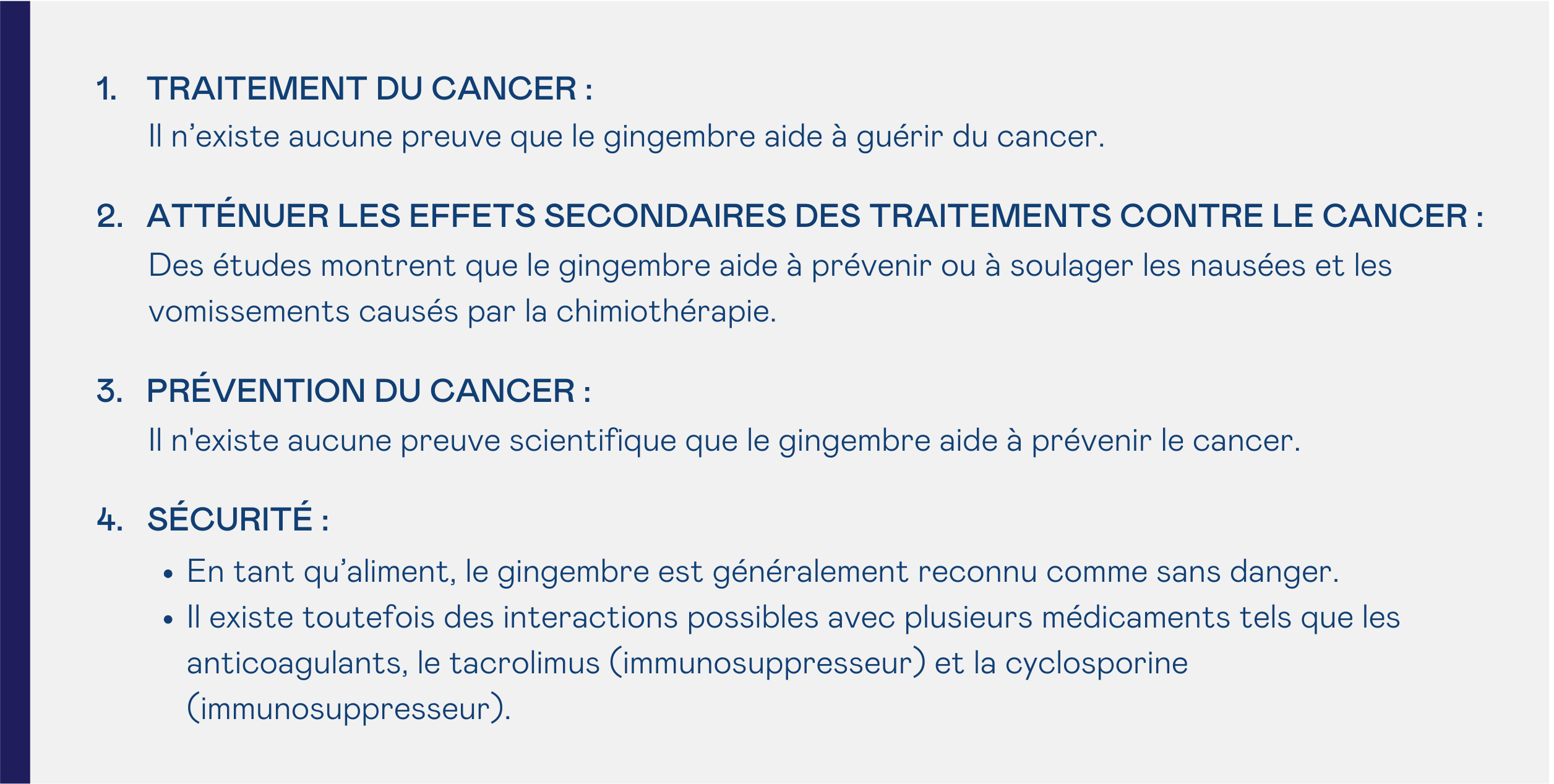Menu


Le gingembre (Zingiber officinale) est une plante d’origine asiatique. Sa racine est utilisée comme épice dans les préparations culinaires ou dans le thé. Le gingembre est en vente libre dans les supermarchés. Il peut également être consommé sous forme de gélules ou d’huile essentielle (1).
Les principes actifs du gingembre sont le gingérol, le shogoal et le zingiberene (1). Le gingembre est utilisé dans la médecine traditionnelle chinoise pour traiter les nausées et les vomissements. Il est aussi utilisé comme anti-inflammatoire, en cas de rhume, pour lutter contre les dépendances, pour traiter les douleurs menstruelles et pour favoriser la digestion (1-15).
La majorité des études examinent l’effet du gingembre sur les symptômes liés aux traitements du cancer, tels que les nausées et les vomissements provoqués par la chimiothérapie.
À ce jour, il n’existe aucune étude fiable portant sur l’effet du gingembre dans le traitement du cancer.
Plusieurs études mentionnent que le gingembre aide à prévenir et à soulager les symptômes des nausées et des vomissements causés par la chimiothérapie (1, 16-18).
Certaines études ont examiné l’effet du gingembre sur la fatigue et la qualité de vie. Toutefois, leurs résultats ne sont pas clairs. Des études supplémentaires plus fiables et de plus grandes envergures doivent encore être menées pour pouvoir infirmer ou confirmer les résultats. (1, 17, 19-21).
Une recherche très limitée suggère que le gingembre pourrait augmenter certains marqueurs anti-cancéreux, notamment dans le cas du cancer colorectal (cancer du côlon). Toutefois, les répercussions cliniques demeurent incertaines. A ce jour, il n’existe aucune étude démontrant un effet préventif du gingembre contre le cancer (22). Des recherches scientifiques supplémentaires sont nécessaires pour pouvoir formuler des recommandations (4, 22-26).
Le gingembre est reconnu comme étant sûr, avec un nombre limité d’effets secondaires et d’interactions.
Une consommation maximale de 4 g de gingembre par jour est généralement reconnue comme sûre.
Les effets secondaires potentiels d’une consommation plus élevée sont :
Le gingembre peut augmenter la concentration sanguine du tacrolimus (immunosuppresseur) (31) et diminuer celle de la cyclosporine (immunosuppresseur) (32).

Des professionnels pour répondre à toutes vos questions sur le cancer

